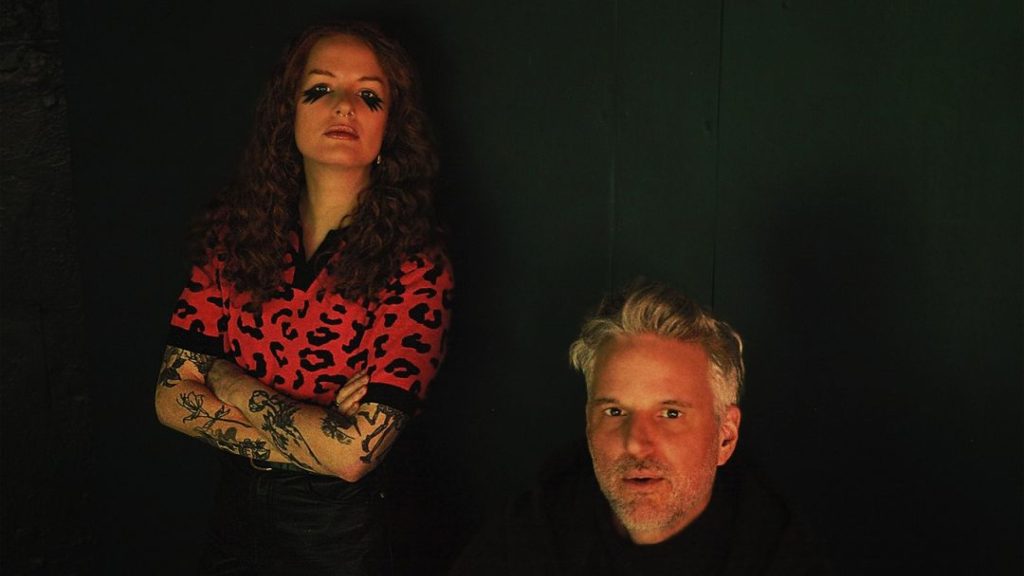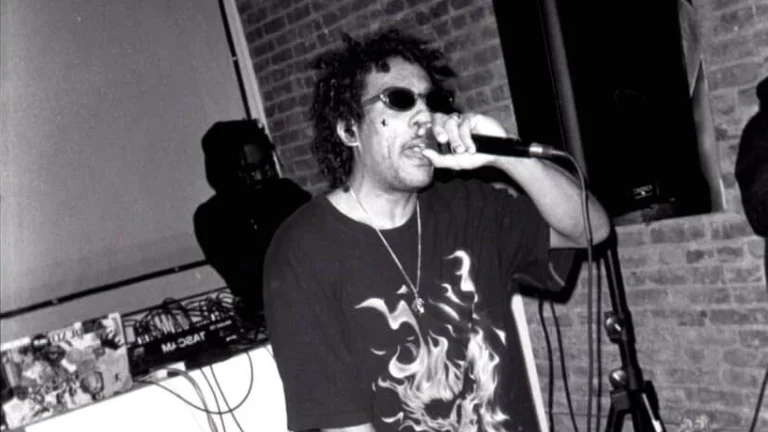If anything is for certain, it’s that when you experience art made by multi-instrumentalist, singer, songwriter, producer, noted former Boston resident, and overall madman Jake Zavracky, you will surely encounter many twists and turns. First appearing into public consciousness through the ripping, defiant, venomous hard rock tunes of his band Quick Fix, Zavracky took a sort-of about-face with his new wave/synthpop outlet The Cyanide Valentine. The latter flipped from an electropop twosome into a full band/studio project that, in both cases, defied and refused in equal measure all genre categorization. Though, the categorization of dream pop wouldn’t be too far off for the second, more psychedelic album, The Three Sides of Cyanide Valentine.
For those who stuck by The Cyanide Valentine, it would be easy to perceive The Dream Eaters, a New York art-pop band that consists of Zavracky and singer Elizabeth Lebaron, as an offshoot of the project, and in a way, it is. Where The Cyanide Valentine stayed close to the electronic production that often blends in with their dream folk sound, The Dream Eaters’ first full-length put more of a stripped-down dream pop spin on the psychotronic Cyanide Valentine sound, especially on classics such as “Sugar Coma” and the swelling Three Sides standout “Neanderthals,” establishing their sound just in time for them to turn into a… dark surrealist comedy group?!
This is where the twists and turns we discussed become strange, if not just downright dark. On YouTube, The Dream Eaters created The Dream Eating Freak Show, whose show is like if the Adult Swim sketch comedy series, Tim and Eric Awesome Show, Great Job!, appealed to the hopelessly awkward goth child in us all. The bio described their sound as “The Carpenters meets Slayer,” but it is more as if the biggest artists of the 80s were foolishly encouraged to sing black metal or darkwave lyrics. It’s giving Dr. Demento if you will, except the music is catchy enough to make you sing songs like “Satan is Lord” (one of a few handful songs that humorously reference Satanism), “Bloody Ass” or the arena-rocker “Smell My Wife” over and over. (Please don’t do that).
Yeah, while we are discussing Zavracky’s songs, his ear for writing sticky sweet rock and pop songs is undeniable and that is what makes the songs both work and add to the “humor” factor. The quotation marks are because it can be hard to tell where the seriousness begins and the humor ends. So goes the paradox of We Are The Dream Eaters. “decomposer” is one of many short—16 seconds long, ideal for future TikTok videos—yet perfect examples of a song that keeps you coming back for more, despite how strange the lyrics are. “meat” tries to test your ability to both bop your head to psychedelic pop and headbang to metal at a whiplash notice. Those are just a few songs from the album that play around with form and imagination.
The Dream Eaters also manages to balance the yacht rock calmness of “everything I touch” with short, nihilistic, and direct lyricism—the 18-second song consists of the words “everything I touch turns to shit” with extra wording. Just know that there isn’t a specific style of music touched here; they largely swing between subgenres of pop, soul, and rock.
Next to songs that are more brief choruses, there are indeed songs that are played stylistically straight and are full-length. “kevorkian” is a power pop anthem—that’s a strange thing to say, isn’t it?—that dares you to sing loud enough and simultaneously begs for the days of Dr. Demento on principle alone. “subhuman,” a song that declares the right “to be loved” as a human and one of the less surrealist tracks on We Are The Dream Eaters, is a shiny synth disco track that will burrow its way into your mind. “night terrors ‘24” is a full Britpop-flavored pop track where Zavracky and Lebaron both team up and foil each other with Zavracky’s sweet vocals hiding depressed lyricism and Lebaron’s straightforward anxiety ridden chorus—which Zavracky later join in on.
This may seem like a pseudo-comedy album that banks on surreal, depressed, and deeply macabre humor, but what makes this album more fitting for the times is that we live in a moment where anxiety, negativity, and controversy have reigned supreme from the music to the media. Much gold can be found digging through the murky craws of one’s soul, as SoundCloud rap has proved time and time again. Who better to contribute to said sad zeitgeist than someone who has been doing it for the longest? And what better project to do it with than We Are The Dream Eaters?






One Comment
Pingback: The Dream Eaters create darkish and humorous earworms
Comments are closed.